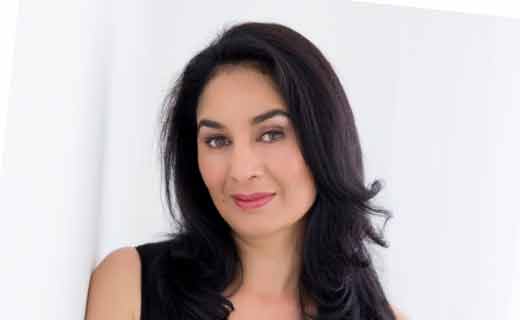Toi Ohomai Advisor Secures HRC Funding for PhD

Friday, 11 Jan 2019
Understanding racial and ethnic bias in the nursing profession and then working out a way to reduce it are the objectives behind Sonia Hawkins doctoral research.
Her application for her PhD research was signed off earlier this month.
Sonia is one of four people to be awarded a Health Research Council (HRC) scholarship, valued at more than $128,000, to complete her doctorate.
Sonia – who affiliates to Te Arawa and Tainui – worked in the Toi Ohomai Strategic Partnerships and Māori Success directorate as an advisor, where she developed a new Treaty-based approach and the inaugural Equity report.
She says her doctoral research will help build on her masters’ thesis and the work she had been doing with Toi Ohomai.
“My PhD research relates to the findings from my masters research that centred on narratives of power and privilege. The nurse participants expressed strong views related to the dominant theme of power and privilege, and four subthemes of privilege discourse, bias and stereotypes, cultural safety and racism.
“My thesis findings were a call to action to undertake further research, and to build on another HRC funded study that examined ethnic and racial bias decision-making among medical students."
Sonia says there are 57,000 nurses in New Zealand, but Māori only make up seven per cent of the workforce. She says the reasons why there aren’t more needs to begin with institutions, the systems, its policies and priorities.
“New graduate nurses that whakapapa to a rohe, are confident in te ao Māori and are Nursing Council of New Zealand (NCNZ) qualified, are critical to developing the nursing workforce. However, the system doesn’t always recognise or value the dual attributes Māori nurses bring. The disproportionate over-representation of non-Māori would suggest one of the contributing factors is the recruitment system and process, which privileges a non-Māori western worldview instead."
“Our Māori health research tells us since the Treaty of Waitangi institutions’ structure disadvantage and marginalise Māori.”
She says all registered nurses make an annual declaration to NCNZ that they meet regulatory requirements within their scope of nursing.
“Applying Treaty of Waitangi Te Tiriti o Waitangi principles and culturally safe practice are fundamental competency requirements. My research findings have shown that nurse leaders’ ability or will to enact structural change, and make inroads towards health equity for Māori is variable.”
Her research will also explore why Māori don’t engage with health services.
Sonia says in her masters’ thesis, senior nurses shared one of the reasons Māori don’t engage with health services is because Māori do not see themselves, their values or beliefs represented in it, and she looks forward to exploring this further during her doctoral research.
She points to the story of Talei Morrison from Rotorua, who after being diagnosed with stage 4 cervical cancer, founded the Smear Your Mea campaign.
The campaign, which went viral online, encouraged women – particularly Māori – to keep their cervical smears up to date. The campaign reflected a way of reaching out that Māori related to then embraced.
Sonia says Talei didn’t engage with health services initially because it was an unfamiliar setting. She says her PhD will contribute to disrupting structures that are obstructive to Māori.
“The kaupapa started by Talei was by Māori for Māori and it works. Māori flourish and thrive when we are doing it on our own terms,” she says.
Sonia says she always wanted to be a nurse because she wanted to work with and for Māori.
She graduated from Waiariki Institute of Technology with a Bachelor of Nursing in 1997 and completed her Masters in Health Science in 2017 at the University of Auckland.
Sonia says she has been mentored by incredible and strong health sector leaders during her career.
“One leading Māori health researcher Dr Mihi Ratima expected and supported her team to complete a masters or PhD as well as learn te reo Māori. Most of us who worked with her are either masters or PhD qualified. Māori nurse leader Margareth Broodkorn has just been appointed to the Ministry of Health Chief Nurse position. Her professional pathway has included a role that reported to a Māori nurse leader committed to workforce development.
“What that tells you is that when there is a commitment to grow the Māori workforce and do it in a way that acknowledges and supports both clinical and cultural knowledge and expertise, through determined leadership, it will happen.”
After joining Toi Ohomai, Sonia will leave to begin her research this month.
